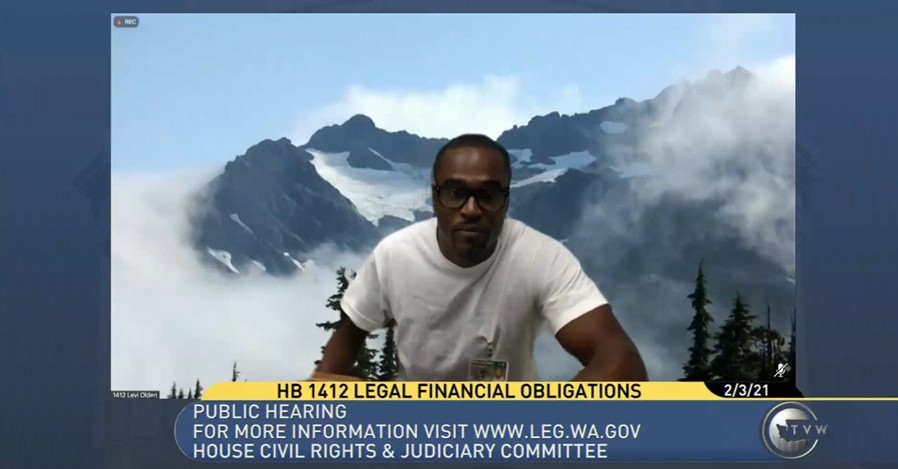This session, the legislature introduced HB 1412, a bill that would provide low-income Washington residents with new and necessary opportunities to seek relief from legal financial obligations (LFOs).
Legal debt in the form of LFOs continues to negatively impact people with criminal convictions, creating a major barrier to successful community reintegration. This year, we advocated together with communities most impacted by disproportionate sentences and debt in support of HB 1412, one of our 2021 priority state bills.
LFOs—the fines, fees, costs, and restitution imposed on people with criminal convictions—create significant barriers to successful reentry for individuals who lack the ability to pay. Some LFOs are mandatory and cannot be waived, creating a life sentence of debt for poor people, preventing them from moving past their conviction and successfully reintegrating into the community.
“We believe HB 1412 corrects some of the socioeconomic issues that perpetuate inequality and oppression,” said Vidal Lee Vincent (pictured above), legislative committee facilitator for the Black Prisoners Caucus at Stafford Creek Corrections Center, during a committee hearing last month on the bill. “Typically, when an individual is released from prison, they don’t have any assets or income. Exorbitant, unpayable LFO debt creates undue hardships for individuals and their families who naturally struggle to cover the costs of their living expenses. The economic aspect of reintegration is all too real for us, and this burden has only been magnified by the current pandemic. Unpayable LFOs remain a significant problem for poor people and disproportionately for people of color in our state who have criminal convictions.”
Amber Letchworth from I Did The Time, a grassroots group supporting people working to overcome barriers associated with past offenses, also testified in support of the bill. “When [my husband] came back from Iraq, five of his platoon members committed suicide, and he struggled with mental health that morphed into an addiction. He was homeless and committed crimes out of desperation while he struggled with trauma,” Letchworth testified. “My family has become responsible for over $300,000 in restitution. The interest on this astronomical amount owed to an insurance company compounds monthly and we will never be able to get out from under this debt. This could be changed if our small, hard-working family could be put in front of a judge to apply for relief.”
In 2018, Columbia Legal Services, along with a number of other community and legal advocates, successfully lobbied for passage of HB 1783—a meaningful first step in LFO reform. However, more work remains to be done to protect vulnerable communities from the harsh consequences of LFOs. HB 1412 would be a substantial next step in providing those protections. After numerous successes in the House, including strong testimony from community members, the bill ultimately died waiting to be taken to the House floor for a vote. CLS, community, and other advocates will continue to work in the interim to raise awareness on the need for further reforms to the state’s LFO system and to fight for passage of these necessary changes in 2022.
We are halfway through the 2021 legislative session and several of our legislative priorities have made it past key deadlines. We won’t let up in the fight to end mass incarceration and promote immigrant equity in Washington state.
In Solidarity,
Hannah Woerner
Columbia Legal Services Attorney

Recent Comments